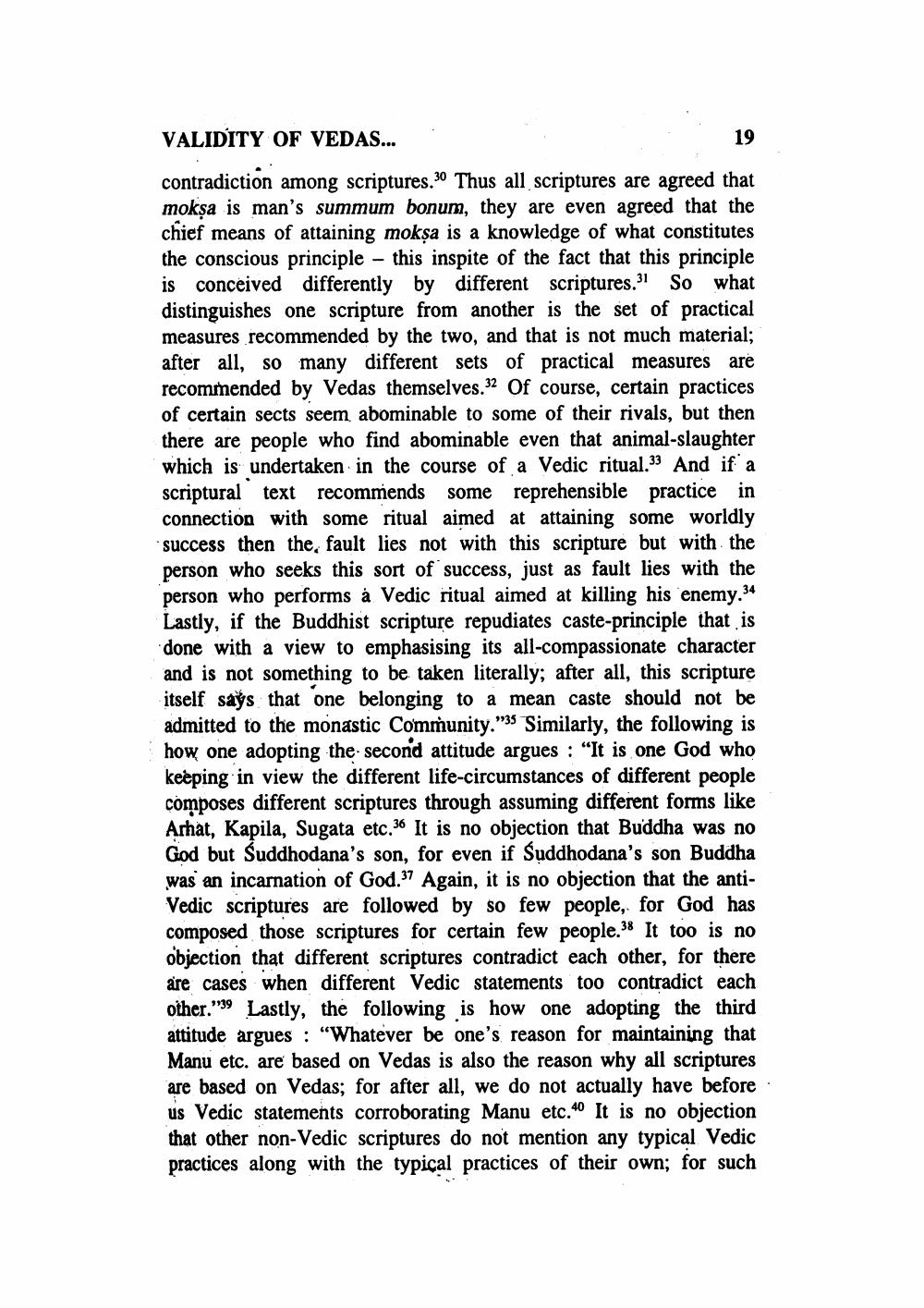________________
19
VALIDITY OF VEDAS... contradiction among scriptures.30 Thus all scriptures are agreed that moksa is man's summum bonum, they are even agreed that the chief means of attaining mokṣa is a knowledge of what constitutes the conscious principle - this inspite of the fact that this principle is conceived differently by different scriptures.31 So what distinguishes one scripture from another is the set of practical measures recommended by the two, and that is not much material; after all, so many different sets of practical measures are recommended by Vedas themselves.32 Of course, certain practices of certain sects seem abominable to some of their rivals, but then there are people who find abominable even that animal-slaughter which is undertaken in the course of a Vedic ritual.33 And if a scriptural text recommends some reprehensible practice in connection with some ritual aimed at attaining some worldly success then the fault lies not with this scripture but with the person who seeks this sort of success, just as fault lies with the person who performs á Vedic ritual aimed at killing his enemy. 34 Lastly, if the Buddhist scripture repudiates caste-principle that is done with a view to emphasising its all-compassionate character and is not something to be taken literally; after all, this scripture itself says that one belonging to a mean caste should not be admitted to the monastic Community."35 Similarly, the following is how one adopting the second attitude argues : "It is one God who keeping in view the different life-circumstances of different people composes different scriptures through assuming different forms like Arhat, Kapila, Sugata etc.36 It is no objection that Buddha was no God but Suddhodana's son, for even if Suddhodana's son Buddha was an incarnation of God.37 Again, it is no objection that the antiVedic scriptures are followed by so few people, for God has composed those scriptures for certain few people. It too is no objection that different scriptures contradict each other, for there are cases when different Vedic statements too contradict each other."39 Lastly, the following is how one adopting the third attitude argues : “Whatever be one's reason for maintaining that Manu etc. are based on Vedas is also the reason why all scriptures are based on Vedas; for after all, we do not actually have before us Vedic statements corroborating Manu etc.40 It is no objection that other non-Vedic scriptures do not mention any typical Vedic practices along with the typical practices of their own; for such




